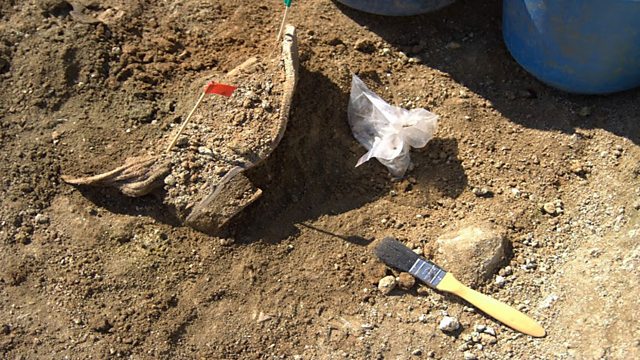Life and Death: Bereavement Without a Body
To lose a loved one is painful enough, but imagine bereavement without a body to mourn: the Cypriot families still waiting for relatives to be found. Broadcast 1 October 2014
For a loved one to die is devastating enough. But to lose those closest to us in war or conflict, and not to know where they are or how they died, compounds the grief and hugely complicates the grieving process. Families can not mourn fully, because they are unable to lay their loved ones to rest.
Claudia Hammond reports from Bosnia Herzegovina, where thousands of people have missing relatives, and from Cyprus, where hundreds of Greek and Turkish Cypriot families have been waiting 40 and 50 years, for the bodies of their missing to be found. In Cyprus, there is a renewed push by Greek and Turkish Cypriots to find the hundreds still missing after inter-communal fighting in 1963 and 1964, and Turkish forces’ intervention on the island in 1974 following a military coup.
The UN-backed Committee on Missing Persons (CMP) in Cyprus is trying to increase its funding to speed up the process of identifying burial sites, exhuming bodies and identifying the missing before the lives of the waiting relatives themselves come to an end. The CMP has turned for help to the International Commission on Missing Persons (ICMP) in Bosnia Herzegovina, the world’s largest specialist DNA laboratory. Exhumed remains are sent to Sarajevo for DNA profiling and the results matched with genetic information collected from the families of the missing.
Following the war in the former Yugoslavia, the ICMP has helped to identify almost three quarters of the 40,000 people missing after that conflict, and they now share this expertise around the world.
The CMP in Cyprus has its own investigators, searching for potential gravesites, as well as scores of forensic anthropologists, painstakingly exhuming remains from mass graves, but the investigative journalist, Sevgul Uludag, is recognised across both communities as key to the process.
For 12 years, Sevgul has worked on a completely voluntary basis, to find the missing. She carries two mobile phones, for Turkish and Greek Cypriots to contact her, in confidence, and she tells Claudia about the death threats she has received to try to stop her work.
Claudia also hears from 69-year-old Maria Georgiadis, who lost her whole family - her mother, her father, her sister and her brother in 1974. None of their bodies have ever been recovered. And from Veli Beidoghlou and his sisters, Sifa and Muge, who were finally able to lay their father to rest after waiting 44 years for his body to be found and returned to them for burial.
Producer: Fiona Hill
Picture Credit: Committee on Missing Persons, Cyprus
Last on
More episodes
Next
Coming soon
Broadcasts
- Wed 1 Oct 2014 18:32GMT91�ȱ� World Service Online
- Thu 2 Oct 2014 01:32GMT91�ȱ� World Service Online
- Thu 2 Oct 2014 08:32GMT91�ȱ� World Service Online
- Sun 5 Oct 2014 04:32GMT91�ȱ� World Service Online
The Truth About Cancer Podcast
Examining the strategies being taken globally to tackle the world's biggest killer
Podcast
-
![]()
The Truth About...
A crucial guide to the things that affect us all. Hear from those with first-hand experience, and experts in the field.


